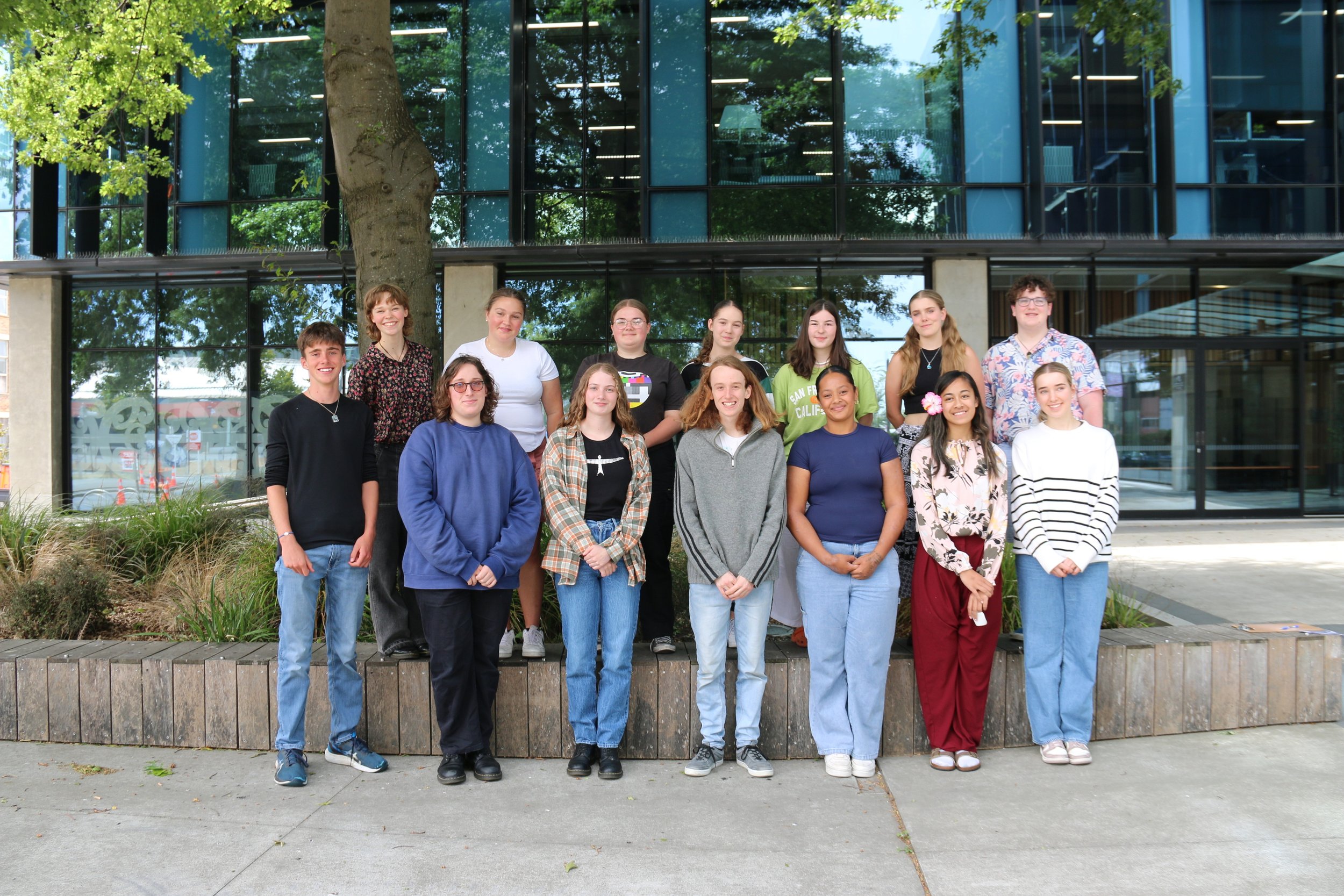Youth speak out for the future
Youth are the largest stakeholders in our environment, and it’s no secret that the future of rangatahi is at risk. That’s why youth voices should be heard and considered in higher-level decision-making.
In Waitaha Canterbury, this is the role of the Youth Rōpū, a passionate group of rangitahi facing Canterbury’s environmental issues.
Jolie Sarginson, right, with fellow Youth Rōpū members. Source: Supplied / Jolie Sarginson.
Environment Canterbury (ECan) is an entity working within local government which provides environmental management and information to Canterbury and the South Island. In 2019, ECan and Waitaha youth recognised the crucial role rangatahi voices play in deciding how best to navigate the future of the environment.
So the Youth Rōpū formed, to foster and facilitate a compatible relationship between young people and decision-makers.
In 2024, third-year UC student Jolie Sarginson, 20, is the co-chair and mana whenua representative of ECan’s Youth Rōpū.
The Rōpū of 20 ranges from 14-24 year olds, made up of UC and Lincoln students and graduates, and predominantly high schoolers. The Rōpū are then broken into groups which discuss mana whenua, transport, environment, government, and engagement topics.
The group of passionate Youth Rōpū voices. Source: Supplied / Jolie Sarginson.
Sarginson has an unwavering passion for the environment and has always devoted herself to community volunteering. After growing up in Ōtautahi Christchurch, Sarginson stayed south to study Social and Environmental Sustainability.
When she heard about Youth Rōpū “through the grapevine”, Sarginson applied to join the advocacy group. “Being involved in ECan opens up a lot of doors and invites real change,” she said.
Sarginson explained, “If you’re learning about all these problems to do with the environment and co-governance, you think ‘that's terrible’, but there are ways you can make a difference.”
Alongside high school student Amanda Kennedy, Sarginson hosts the meetings. As mana whenua leader, she ensures co-governance values are prioritised and that their relationship to Ngāi Tahu is maintained.
“I think it's so important to hear younger voices… [and] to start implementing action at the bottom rather than waiting till you get to the top,” said Sarginson.
Running events, youth meetups, environment forums, submitting applications, bringing youth councils together, advocating on long-term and annual plans, and influencing policy changes are some of the ways the Youth Rōpū advocates for young people in Waitaha.
Organisations should acknowledge the important role of youth advocacy, and can look to this group of Cantabrians for advice.
“I don’t do it because I feel like I have to make a difference, I am doing it because I want to,” said Sarginson. of planter boxes and need for better enforcement of the 10km/h speed limit.
“I don’t do it because I feel like I have to make a difference, I am doing it because I want to.” Source: Supplied / Jolie Sarginson.
A significant achievement in 2023 was advocating for two youth representatives to be elected to the Regional Leadership Climate Community Resilience Committee. This was a huge step in carving a place for youth voices in the government sphere.
One of those youth representatives is third-year UC law student Oscar Bloom, 20.
An original Rōpū member, Bloom now sits alongside councilors as the youth voice, tackling issues such as community activation, climate change, resilience, and regional leadership.
The rōpū of youth volunteers meet every two weeks, and in their sub-groups on the alternate weeks to consolidate, plan, and discuss. Source: Supplied / Jolie Sarginson.
“Young people have the right to be heard about issues that will affect them the most,” said Bloom.
As youth under the age of 18 are unable to vote, ECan’s Youth Rōpū offers a way for youth to feel empowered and to have agency over the decisions that impact them.
When asked why youth advocacy is so important, Bloom explained, “People need to feel like they have a sense of identity in their communities, and that comes from them feeling like they have power to create change and to advocate for what they believe in.”
Advocating for, and representing, young people – or even just existing in the decision-making process – is the Youth Rōpū’s greatest achievement.
“We've accomplished so many things, and if we didn’t have this group, then none of these things would have happened,” said Sarginson.
“Having this group enables real change from the bottom up.” Sarginson laughed, “We're the future, and I know it’s a cliché – everyone says that, but it's true.”




